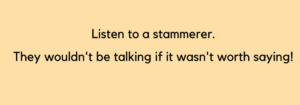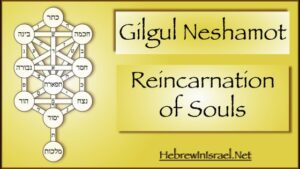Raboyseyee and Ladies,
Moishe’s Resume: Would You Hire This Person?
Over and again, our rabbis, our yeshiva rebbes, and our parents taught us how it’s important to have a good name: Reputation matters. Ober, is that the case? Or, is it farkert? Does the RBSO more readily work with, accept, select for leadership -and even greatness- those whose resumes aren’t quite stellar? And in certain cases – ok, maybe even a lot- even worse!

Let us begin and mistama also end with Moishe whose background check -on any site- would have turned up the following less than flattering factual information:
- Moishe murdered an Egyptian when he thought no one is looking (2:11–12). Fact!
- Moishe married a Midianite woman (the daughter of a Midianite priest) (2:16–21). Fact!
- Moishe developed a close relationship with his father-in-law, the same Midianite priest. They get along famously. Fact.
- The “bloody bridegroom” account (4:24–26) where the snake attacks Moishe and tries to kill him, epes implies that Moishe did not circumcise his son, at least not timely. Fact.
- As opposed to coming from a nice Jewish home, from a heimish family, Moishe was raised by the Egyptian princess (2:10). Fact.
- Yisroy’s daughters referred to Moishe as an “Egyptian man” (2:19). In fact, it is not clear if Moishe ever told Yisroy -and if he does, it’s only many years later- that he is actually a Hebrew. Fact.
- When naming his first son, Moishe called him Gershom, saying, “I am a sojourner in a foreign land” (2:22). Thus, Moishe thought of Egypt as the homeland of his longings. Fact.
And the question begs, vus epes him? Let’s dig further:
He fled Mitzrayim (Egypt) at an early age and was eighty years old when the RBSO told him to return. Was he in contact with his birthmother? Father or siblings? His people? The heylige Toirah does not tell us that he was. In fact, one well-known medrish tells us that he fled to a country called Kush, married a hot shiksa Kushite girl, ruled over the country for forty years, and ver veyst what else?
But wait, there’s more: Says the Rambam that Moishe was of short temper. He did -on his first day out- get into a skirmish. He killed someone. On his second day, he also got himself involved in someone else’s business. Was he a vigilante? Founding member of the JDL? Should temperament be looked at when hiring? The heylige Toirah tells us bifeirush (unequivocally) that he was raised in the palace of the Egyptian Paroy, that he taka killed the Mitzri and covered up his deed by covering the deceased with sand. Was he involved in the first ever coverup? Is that where the word comes from?
He did not -unlike other Toirah heroes- spend any time in the yeshiva of Shaim and Ever. In fact, it appears that he was not a learner, not at all. He was instead a shtikel earner working for his shver (FIL) – the pagan priest, as a shepherd and that he married one of his shiksa daughters, Tziporah. Ober, did any of these blemishes deter the RBSO from selecting Moishe to lead the Yiddin? Not!

Wait, there’s even more: His resume has gaps; we cannot account for, and zicher not verify -except in the medrish of course- his whereabouts for approximately sixty years. Nu, imagine submitting a resume for consideration and 60 years of your life were left blank. Yet he comes back in our parsha and is the proclaimed leader of the Yiddin. What’s taka pshat? Why didn’t the RBSO select a leader from a greater family? Why an outsider? Vus epes Moishe whose parents were -according to the medrish- divorced and remarried, and where his father Avrom- was married to his own aunt Yoicheved?
And taka, why did the RBSO select Moishe? The answer is that we don’t know because the heylige Toirah says very little about him, other than that he was extremely humble. What to do? Shoin, as in most other cases, when information is non-existent or scarce, our rabbis of the medrish created some background and let us read what they had to say. Was his, the first resume that wasn’t exactly emes?
Moreover, though we have absolutely no idea what Moishe looked like physically- his depiction in various Hollywood movies is all we have to go on- last week’s parsha did give us one hint when the daughter of Yisroy described him as in “ish Mitzi,” an Egyptian man (Shmois 2:19). Seemingly, he did not look or dress very Jewish. What to make of this lack of information?
In yeshiva they would tell us such personal information was not relevant; that the heylige Toirah isn’t a story or history book. It is rather a book of mitzvis and a theological treatise. And that what mattered about Moishe is not how he looked but what he said: it’s the mitzvis he taught and his role as the RBSO’s spokesman that matters.
What do we know with certainty is only what the heylige Toirah told us last week and again this week. Moishe was not a very good speaker – he had epes a shtikel speech impediment, a disability, and one of course wonders how he was able to teach and lead with this issue. Moishe himself so stated after being charged by the RBSO to go to Paroy and demand before him and his court the deliverance of the Jewish people. Moishe was not -at least on paper- the best man to do the talking. Let us read the relevant pisukim from our parsha:
And Hashem said to Moishe, “I am Hashem; speak to Paroy king of Egypt all that I will tell you,”
וַיֹּ֥אמֶר מֹשֶׁ֖ה לִפְנֵ֣י יְהֹו הֵ֤ן אֲנִי֙ עֲרַ֣ל שְׂפָתַ֔יִם וְאֵ֕יךְ יִשְׁמַ֥ע אֵלַ֖י פַּרְעֹֽה׃ {פ}
Moishe appealed to Hashem saying, “See, I get tongue-tied; how then should Paroy heed me!”
In our parsha, Moishe is but repeating what he had already told the RBSO. Last week, (Shmois 4:10) Moishe said this: “Please, O Lord, I have never been a man of words, either in times past or now that You have spoken to Your servant; I am slow of speech and slow of tongue.” Moishe has a speech impediment. As translated by Rashi into Old French, he suffered from balbus, he had a stammer. And while the RBSO agreed to let Aharoin, Moishe’s brother, speak on his behalf before Paroy, there is barely a parsha we will read nor a story we will encounter that will not contain Moishe either speaking to the RBSO or the Jewish people. The entirety of Sefer Devarim is one long speech! Could he, or could he not speak? Was he cured? Speech therapy?

Why taka did the RBSO choose Moishe? Why was the most vocal figure in the heylige Toirah also the one with a speech impediment, ver veyst? This question avada bothered our sages who suggest that either the RBSO removed Moishe’s stutter permanently or temporarily. Alternatively, they suggest that every time Moishe spoke, it was actually Aharoin serving as his mouthpiece. Others go even further still and understand Moishe’s condition not as a physical disability but merely an inability to speak Egyptian fluently before Paroy. Which was it, ver veyst? On thing is certain: Moishe himself tells the RBSO that he has a shtikel issue with speech however his issue manifested. The heylige Toirah mentions this more than once.
Shoin, given his background and speech impediment, why -we ask for a fourth or even fifth time- was Moishe chosen by the RBSO? Says the Bechor Shor, so gishmak azoy: the greatest leader of the Jewish people had a speech impediment to teach us that the RBSO’s will can be manifest through anyone. The RBSO intentionally chose someone who struggled to speak to illustrate His own power. Bam! One could also argue farkert: the RBSO intentionally chose someone who struggled to speak to illustrate that disability need not impede our relationship with Him, nor prevent a person from succeeding. Also gishmak.
So why was he chosen? According to at least one medrish, Moishe was a gilgul, a reincarnation of poor Hevel who was nebech killed back in the first parsha of the heylige Toirah by his own brother Kayin. According to another medrish, Moishe was also a gilgul of Shais and if any of those medroshim are true- of course it’s possible- then we can kler that from birth he had a particular role, mission, and destiny that the RBSO had in mind for him. What all that means, ver veyst?

Wait! Moishe was a reincarnation? Of who? Says the Ramchal (Derech Hashem 2:3-10), azoy: “There is an important principle in terms of how the RBSO supervises this world, and which is arranged by the upper wisdom to increase our likelihood of success. The bottom line of all this reincarnation talk is this: The main reason for reincarnation is for the soul to fulfill its role in the creation and achieve the spiritual level for which it is destined. If a soul does not manage this in its first life, it may be given another chance, and another. If the soul did not succeed in three tries, it’s over and the soul is seemingly doomed. What that means, ver veyst? Has a soul ever reported back? Not!
Let us review: A single soul can come to this world a number of times in different bodies. It will then be able to repair [in its current existence] what had been damaged in its previous one, or to perfect whatever had not been rectified [previously]. Shoin, most of us could use such rectification especially those who were busy sinning with their erectifications, if you chap. Veyter.
According to some kabbalists, Hevel reincarnated into several important historical individuals. His soul first reincarnated into Sheis, Odom and Chava’s third son who was born to them 130 years later. Seemingly, it took Odom (Adam) a long time to get over his wife’s encounter, if you chap, with the snake, which according to another medrish was mamish a sexual encounter. That for another time. In any event, Hevel became Shais and his soul then reincarnated into Moishe 2,238 years later. Of course, it did! According to kabbalah, the Messianic Era will not begin until all of the reincarnations of Hevel are complete. Seemingly, his soul may have more than three opportunities for rectification. Personally, it feels like big things are about to happen and if any of this is emes -of course debatable, but possible- perhaps Moishe will reincarnate in every generation to remove souls from their impurity. Eventually, the soul of Moishe will [ultimately] reincarnate into the body of Moshiach. Got all that? I didn’t think so but let’s go Veyter.
According to another, Moishe was selected for his compassion and we read the following myseh which the heylige Ois may have shared in the past. The RBSO tested Moishe by means of the flock. What took place? Moishe was tending Yisroy’s flock out in the desert when a lamb ran off. Moishe followed it, until it found shelter under a rock. There it found water and stopped to drink. When Moishe approached the lamb, he said: “I did not know that you ran away because you were thirsty. Now you must be tired.” Next: Moishe put the lamb on his shoulder and walked back with it. The Holy One then said: because you showed such compassion tending the flock of another person, as you live, you shall become the shepherd of Israel, the flock that is Mine. Thus it is written: “Now Moishe was tending the flock.” Where can one find such a gevaldige medrish? Check it out in the Medrish, Shmois Rabbah, 2:2.
Shoin, if that story does not talk to you, of course there are others to pick from and let us try a different flavor. Says Rashi (Shmois 2:2) “even from birth it was recognized the Moishe was special.” When he was born, the entire house was filled with light. Find this pshat in the heylige Gemora (Soita 12a, and in medrish 1:20)
How about this one from Pesikta de-Rav Kahana, (parsha 23): “Everything that is the ‘seventh’ is beloved… In the listing of the generations, the seventh is beloved: Adam, Sheis, Enoish, Keinan, Mehalalel, Yered, Chanoch – ‘And Chanoch walked with the Lord’ (Bereishis 5:24). Concerning the forefathers, the seventh was beloved: Avrohom, Yitzchok, Yaakov, Levi, Kehos, Amram, and Moishe – ‘And Moishe ascended to the Lord’ (Shmois 19:3).”
And says Nechama Leibowitz also so gishmak azoy: Leading up to Moishe’s prophecy at the s’neh (burning bush), there are three progressive stories recorded about him.
The first is the story of him seeing the Mitzri oppressing a Hebrew, in which he kills the Egyptian. This demonstrates how strongly he felt about saving the oppressed, but one might think that he only got involved because he was defending a member of his own people against the enemy. Next, however, we see him getting involved in a fight between two Hebrew men, showing that Moishe was a man who wanted to stop fights even within his people. Finally, we find that after he runs away, he defends the daughters of Yisroy from the shepherds. Despite the fact that these women were perfect strangers, Moishe’s sense of injustice was so strong that he was ready to assist anyone who needed help, no matter who they were. One could of course argue that Moishe didn’t know how to mind his own business.
And says Rav Simcha Zissel -aka: the ‘Alter’ from Kelm so gishmak, azoy: notwithstanding anything else in his background, and the many holes in his otherwise lack luster lacuna filled resume, Moishe had that one thing that uniquely qualified him for the job: Moishe was clearly a person who was “nos’ei b’ol im chaveiro” (he had the capacity to feel the pain of his fellow Jew). He had empathy. A prince in Paroy’s palace – mamish like a grandson to Paroy- he could have remained in the lap of luxury and done nothing. He did not. Instead, when he saw a Jew being beaten up by a goy, he got involved and saved him. He did the same the next day when he observed two Yiddin fighting. He was nos’ei b’ol im chaveiro. His suffered for his involvement. He lost his secure position in the palace; he was forced to run for his life and became a fugitive from justice.

The bottom line: Moishe bore the burden of his fellow man’s suffering. And for that reason, he also got involved when Yisroy’ s daughters were being harassed at the well. His resume contained this one-character trait: he was empathetic.
The point of these medroshim is to drive home one big positive character trait: Moishe was a defender of the weak and righter of injustices, a man who deserved to lead a people. Was the Superman character -comic books and TV show- based on Moishe?

Ober all that said, why did the RBSO arrange things so that a great man like Moishe would be the product of a marriage which was destined to be forbidden after Matan Toirah? After all, is one allowed to marry one’s own Tanta (aunt) even if she is smoking hot? Not! But was Moishe married to his aunt? Not! But the heylige Toirah tells us bifeyrush (explicitly) that his father was! How was it that Moishe, adopted by an Egyptian Princess, weaned by his natural mother, raised as an Egyptian prince in Paroy’s castle who fled his native country as a fugitive from justice after killing a Mitzri and then married a Midianite shiksa -or according to one medrish, maybe even two different women, both not Jewish- became the designated leader of the Yiddin? Was he selected davka because he was this great guy? Or, was he selected notwithstanding his background and his own activities? Was he deserving, or, was he but selected? Whatever the case, it could be argued that Moishe was a very unlikely choice to lead the Yiddin, to redeem them from slavery, and to bring the heylige Toirah down from Heaven to the Yiddin.
The bottom lines: Moishe was neither the first, nor the last controversial figure to be selected for greatness by the RBSO. The list in either direction is long. Hec, were the shvotim worthy, or were they but selected? Were Loit’s two daughters -those very ones who mamish raped their own father, worthy? Mistama not! Yet, for some reason, the RBSO selected them; from the loins of one of them came the likes of Rus and later, Dovid Hamelech. One day soon, the Moshiach will trace back to them. Was Yehudah – the man of roadside encounters who initially wanted to cancel his service provider, if you chap, – he initially decreed the death penalty-worthy? Mistama not! Yet, he was selected for royalty despite his behavior. Was Dovid Hamelech’s behavior worthy of royalty? He only bedded and impregnated a married woman. Not quite done, he also arranged the death of the woman’s husband. Our rabbis of the heylige Gemora were forced to scramble mightily and worked overtime to come up with scenarios where Dovid was declared mamish innocent. And the list of controversial figures whom the RBSO selected anyway for greatness – a topic we have covered more than once these past fourteen years- goes on.
The good news: it appears that past indiscretions notwithstanding, when the RBSO selects one for leadership and or greatness, nothing in one’s past, would prevent such a person from being hired. And that raboyseyee is the take away of the parsha; it’s good news for most of us. More good news: The RBSO does not care about narishkeyt. Moishe’s life story is a striking example of this truism. The final bottom lines: What is clear from biblical narrative and Jewish and world history generally is that the RBSO does not play by our rules nor does He conduct Himself by our preconceived norms and notions. Much of our rich history has been formed by unlikely heroes, unexpected champions, and surprising personalities.
A gittin Shabbis!
The Heylige Oisvorfer Ruv
Yitz Grossman
